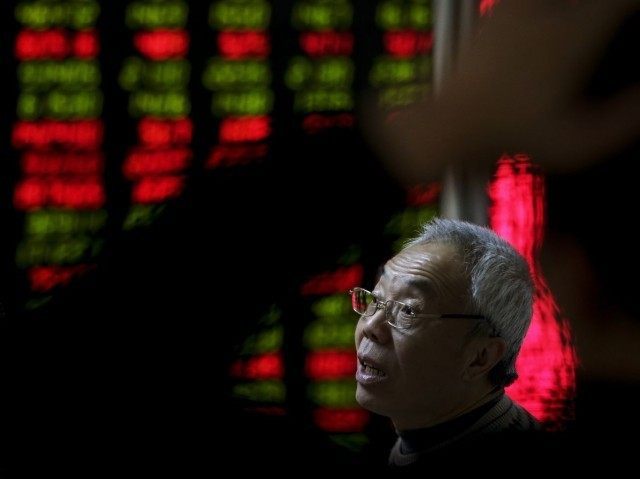From Andy Mukherjee writing at Bloomberg:
Turbulence in Shanghai stocks has global investors on edge though really it’s the Chinese currency they need to be watching to assess the risk of a full-blown contagion.
The reason is simple. Share ownership is still a small part of Chinese household wealth. Price gyrations — like the 7 percent drop in the CSI 300 index Monday — do affect market valuations globally. But beyond short-term jitters, the sharp declines don’t mean much. Mostly, they’re a reflection of pent-up selling pressure, such as the impending removal of a ban on major shareholders’ equity sales. To a more limited extent, they’re a handy barometer of investor despondence over authorities’ seeming inability to stabilize GDP growth at anywhere near their stated 7 percent target.
But just how that weakness in Chinese demand might reverberate through neighboring Asian economies — the most likely starting point of any contagion — is the more important story, one that’s better told by the 5 percent drop in the yuan against the U.S. dollar since just before last year’s surprise Aug. 11 devaluation.
To see why this slide matters, consider the 800-odd non-Chinese, non-financial companies in Asia that, according to their filings, garner 80 percent or more of their revenue from China, Europe or America. This motley group of Asian exporters includes Australian commodity companies such as Fortescue Metals, Singapore-based smartphone casing fabricator Hi-P International, nearly all Indian software services companies, and Hartalega Holdings, a Malaysian maker of latex gloves.
Focus next on these exporters’ combined annual net profit, which rose from $40 billion in 2010 to $50 billion in 2013, but has since slumped to a little less than $45 billion. Competing against Chinese rivals who have the advantage of a weaker currency could push some of them out of business, and force many more to fire workers and cancel investments. The more the yuan weakens against its trading partners’ currencies, the greater the risk that weak corporate profitability will infect the region’s banking systems.
Read the rest of the story at Bloomberg.

COMMENTS
Please let us know if you're having issues with commenting.